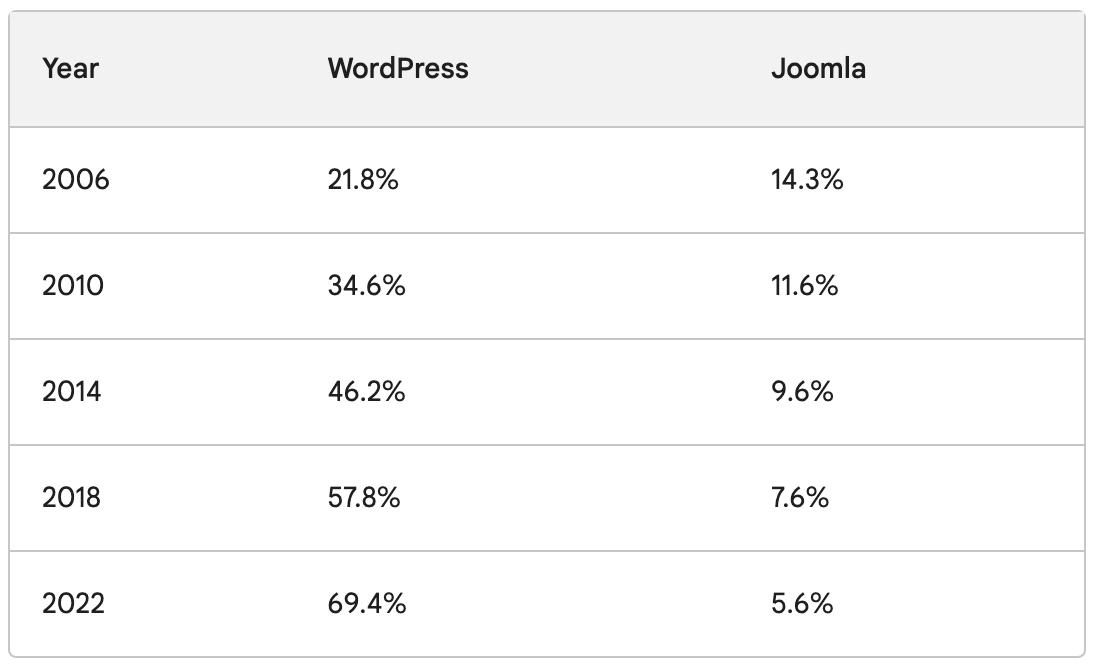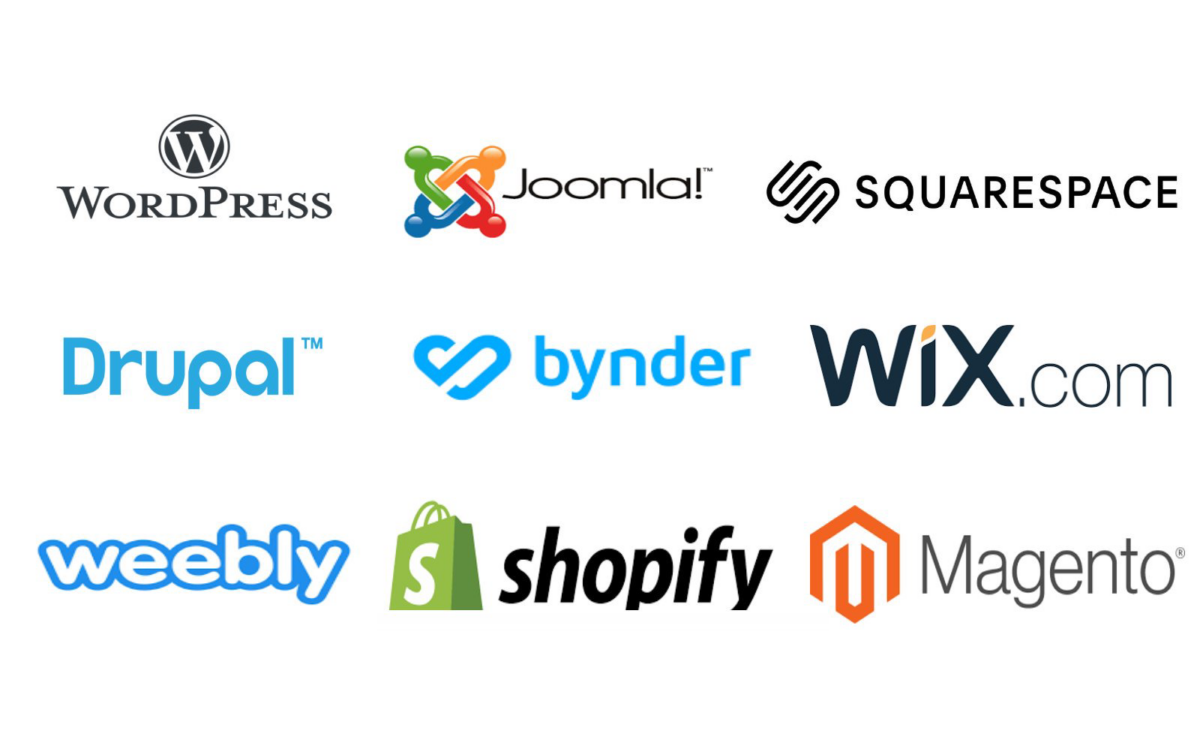It’s hard to believe, but in just two days, WordPress will be celebrating its 20th birthday! I first ventured into the world of WordPress back in 2006, when website building was a whole different ball game. Back then, most websites were what we called “static websites.” As a developer, I would painstakingly create each page using HTML and upload them one by one to the server. Whenever the site needed any changes, clients would either send me a Word document with a list of edits or I would physically visit their office to implement the changes. I still remember one client who would print out the website, cross things out, and scribble in the modifications.
I was eager to embrace the concept of a “dynamic website.” This meant that clients could update their own website content directly, without relying on developers like me. However, at the time, not many people were interested in managing their own content. Most clients preferred to inform me of the changes and have me handle them. Over time, I began using content management systems (CMS) for building websites, even when clients didn’t specifically request it, because it made the process easier for me in terms of development and maintenance.
In 2006 there were a lot of content management systems available and there was healthy debate around which one was going to jump out of the pack. Joomla! and WordPress were not far off each other in terms of market share, but that was all about to change.

My preferred CMS back then was Joomla! (yes, the exclamation mark is part of its name), I found Joomla! to be visually appealing and powerful. It allowed me to have a standardised template while incorporating modules in various locations and advanced components for impressive functionalities.
I once spoke to a potential business partner about merging my web agency with theirs and their idea was to focus specifically on WordPress. I thought, ‘why the hell would you do that!’. Turns out they were right, WordPress was set to take over, and today I find myself running my second dedicated WordPress business.
Early on WordPress was mainly known as a blogging platform, but as the feature set grew it started emerging as a legitimate competitor to other platforms like Joomla! and Drupal and before I knew it WordPress was dominating.
Let’s look at how that happened.
Simplicity
WordPress was much simpler than the competition. I saw that as a weakness because I wanted all the fancy features. But at a time when the end customer didn’t even really want to log into a website, simplicity was super important. Clients couldn’t understand Joomla! It was put together by modules and content sections and unrelated menus, it was confusing. So even when I ran Joomla! for client websites, I would often update it myself.
WordPress was simple, it was posts (which most of my clients didn’t use), and pages. Clients could log in, see not much, see ‘pages’ and click on it and start editing. This changed the game because clients started wanting to manage their own content. This led to a content revolution, and WordPress was right there at the right time to lead the way.
Lightweight and fast
WordPress was much smaller and more lightweight than the competition. This meant it was super fast to download and manage, and the sites were faster to load. It was easy for hosting companies to include it built in on their servers. It was easy for developers to manage the websites. And faster websites make for more traffic, lower bounce rate, more engagement, more sales and higher search engine rankings.
Famous 5 minute install
WordPress made a big deal of its famous 5 minute install. This was a game changer because it used to be so easy to install WordPress that developers started using WordPress instead of making static sites even when the clients weren’t asking for it – I know I did! It changed the whole paradigm because it became easier to run a CMS than a static website. The likes of Joomla! and Drupal weren’t super hard to install but they didn’t have the simple install wizard and WordPress was well ahead of them at the time.
Community
Developers really got behind WordPress for many of the reasons above. It was a flourishing open source project that developers were drawn to and it was improving quickly. Once the community got on board things got a lot easier, thousands of plugins, awesome themes, great hosting options, easy support etc. I found myself trying to push Joomla! on people but WordPress was popping up organically all over the place.
Security
Security was a huge part of WordPress’ rise to prominence. My Joomla! sites used to get hacked all the time. You had to be really careful with permissions and security and I’d find myself regularly finding unexpected files on sites. I had one client who’s whole homepage was overrun with explicit images.
My argument at the time was ‘well Joomla! gets hacked all the time because it’s the dominant player and therefore has a big target on it’s back’. But the thing is, clients didn’t care about that. They just didn’t want to get hacked and WordPress got hacked a hell of a lot less than Joomla did.
SEO
SEO was another very significant factor. WordPress was built to be a content creating beast. Once Google got search engine dominance, content became king. Google favoured sites with lots of content which was right up WordPress’ alley as a blogging platform. WordPress also had very easy to use features for things like creating keyword-rich permalinks (Joomla! for example was a bit more tricky to do this). And WordPress being lightweight and fast meant WordPress sites would tend to rank higher in Google. Google became obsessed with speed, and for good reason – people bounce off sites that are slow to load which means a bad experience for Google.
Continuous improvement
WordPress core improved constantly in the early years growing from a basic blogging platform to a full-featured CMS. People could see this growth and got excited by it. Joomla! was super powerful to start with, the main issues were how complex it was to understand and that issue never really got resolved – it became a bit stagnant in that sense. 20 years is a long time and the benefits of continuing to build the core system compounds over time with related improvement in all the other parts of the ecosystem like hosting, themes, plugins etc.
Related: My observations on what’s changed in WordPress since I left in 2015
Those are some of the reasons I think WordPress won the war, although I wouldn’t’ regard it as being over. WordPress is under a lot of pressure from hosted solutions and the WordPress marketshare is pretty static right now. The future will be interesting for sure!
I’m keen to know what you think, hit me up @thedannorris on Twitter with your thoughts.
If you are an Australian business who wants help with WordPress check out our plans here. If you are interested in more content like this, check out the rest of the WP Master blog.
- A simple guide to WordPress SEO - May 25, 2023
- Common WordPress Errors and How to Fix Them - May 25, 2023
- What To Do If Your WordPress Website Is Down - May 25, 2023

